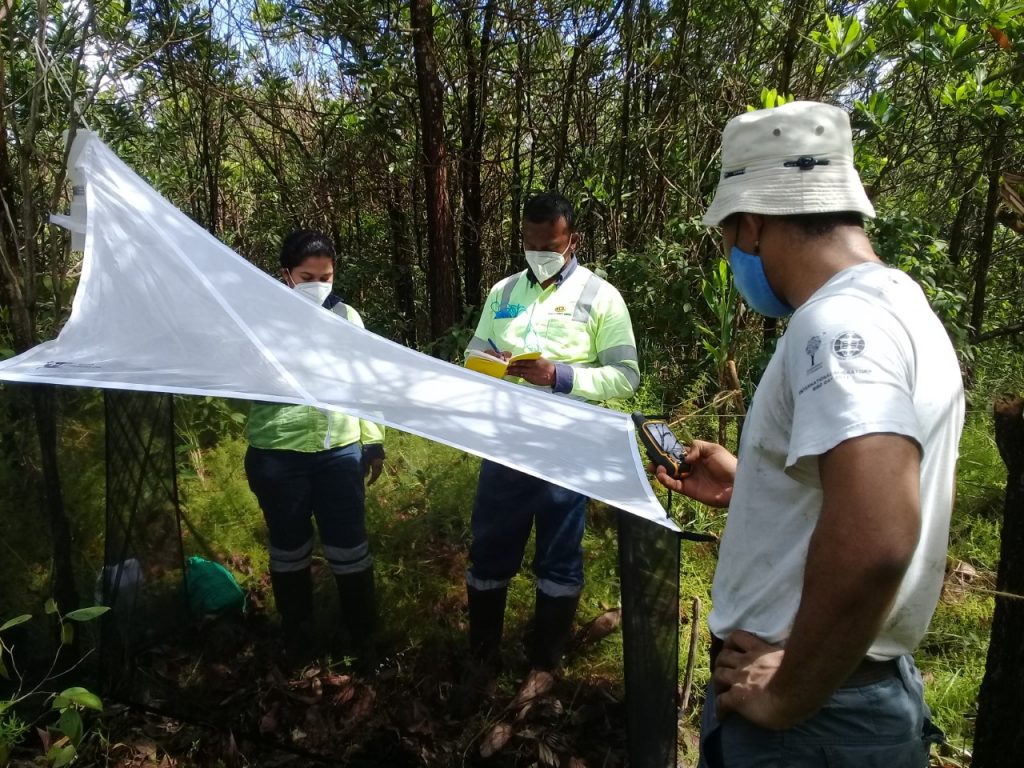In its ongoing efforts to tackle the growing threats to pollinator species, the Ministry of Planning and Development, through its Environmental Policy and Planning Division, today, Wednesday, December 15, launched its new project- The Biodiversity and Ecosystem Services Network Trinidad and Tobago, or BES-Net TT.
This two-year project aims to conserve and address the ongoing threats to pollinators such as bees, butterflies, and bats in Trinidad and Tobago. The project is being implemented with the support of the United Nations Development Programme (UNDP), making Trinidad and Tobago one of the first recipients of the BES Solution Fund of approximately US$320,000.00.
BES-Net TT is designed to improve collaboration and coordination among scientific and local research groups, policymakers, and practitioners such as farmers, beekeepers, entrepreneurs and other stakeholders, improving scientific knowledge, strengthening policies and plans, and promoting citizen science and public awareness. This catalytic financial support goes towards improving decision-making and pollination science across Trinidad and Tobago.
Pollinators are crucial to Trinidad and Tobago’s food security, diverse agricultural production, and biodiversity as a whole. Yet their habitats are steadily facing challenges from quarrying, deforestation, rapid urbanisation, and poor management practices, among others. By way of example, local studies have predicted that the complete loss of pollinators can reduce the production of hot peppers by 88.1%, cucumbers by 96.5% and ochroes by 86.2%.
Evidence is indicating that a drastic reduction in the variety and number of pollinators will lead to a precipitous collapse of many ecosystems, not to mention the loss of thousands of livelihoods and with it, any progress towards sustainable development. This project seeks to benefit several sectors such as agricultural production, beekeeping, forestry, ecotourism, and horticultural sectors, not to mention the indirect gains to be made in land productivity and stability.
Speaking at the launch, Rosemary Lall, Programme Officer at the UNDP Country Office noted that: “Supporting nature is increasingly seen as one of the most effective ways to tackle a myriad of socio-environmental challenges and achieve sustainable development goals. As such, we could not be more pleased to be able to be part of this global programme which seeks to strengthen the link between policy, science and practice to ensure that efforts towards nature-based solutions and the post-2020 global biodiversity framework are underpinned by the best scientific knowledge and a wealth of evidence.”
Kishan Kumarsingh, Head of the Multilateral Environmental Agreements Unit at the Ministry of Planning and Development, indicated that the initiation of this project will assist in identifying and assessing T&T’s pollinator fauna, building knowledge of their ecology and the need for their protection and establishing a monitoring system that will enable alerts to when and how their numbers are facing declines, thereby informing intervention options.
BES-Net TT was conceived with the purpose of addressing priority action points coming out of the Caribbean Regional Trialogue on Pollinators, Food Security and Climate Resilience, held in September 2018 in Santo Domingo, Dominican Republic, where Trinidad and Tobago was one of seven countries represented. The work of BES-Net TT and the BES Solution Fund is built on the latest evidence from the Intergovernmental Science-Policy Platform on Biodiversity and Ecosystem Services (IPBES), one of the world’s foremost authorities on conservation and the sustainable use and management of biodiversity. The evidence generated in IPBES’s Assessment Report on Pollinators, Pollination and Food Production and the global awareness and momentum for action resulting from it, forms an essential foundation for BES-Net TT’s work on protecting and conserving pollinators.
